By Kate O’Loughlin, associate strategy director, Rufus
Traditionally seen as a playground for influencers of a global scale and cesspit for Americana brand pop-ups, Coachella is not your average music festival. The 2023 event (14/4 – 23/4/23) featured headline acts such as 90’s band Blink 182, K-pop stars Black Pink, and Puerto Rican superstar Bad Bunny.
While it’s easy to ignore the festival as an overhyped social-crazed warzone, I prefer to consider Coachella as a cultural litmus test. Having reviewed hours on hours of content analysing how festival goers dressed, shared content and engaged with artists, I’ve identified three key cultural shifts from the 2023 event that marketers can use to inform campaign planning.
The “I Don’t Give a F**K” Epidemic
Coachella has traditionally been recognised as an event typified by overzealous boho chic meets street-style grunge core fashion trends.
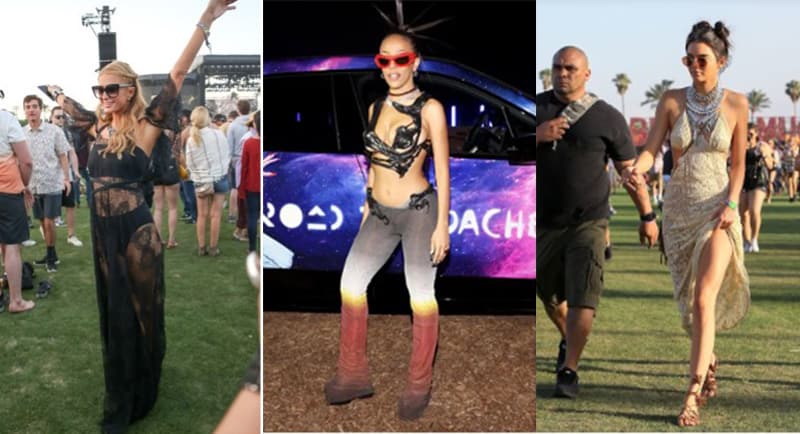
But with the influx of influencers attending the festival in the last decade (coinciding with the rise of social media in general), celebrities have seemingly separated themselves from the pack by opting for gas-station chic over beads and bell-bottoms.
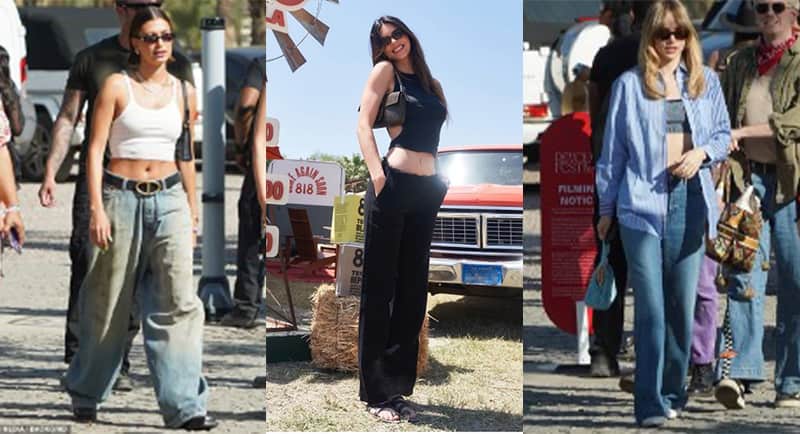
The trend of casual street style fits donned only by traditional (nepo baby) celebrities such as Kendall Jenner, Suki Waterhouse, and Hailey Bieber seems to be a shift intended to set themselves apart from the swarm of ‘fashion focused’ influencers. While in previous years celebrities leaned into the fashion culture of the festival, in 2023 they’re donning basic outfits to distinguish themselves from the ‘common’ social media stars trying to land a spot on Vogue’s ‘Best Dressed’ list. Celebrities are embracing “I Don’t Give a F**K” culture, establishing a new kind of anti-try hard class system to distance themselves from the influencers who are continuously encroaching on their social power.
BTS or bust
No, this trend doesn’t reference the (dreamy AF) K-pop band BTS.
Instead, it refers to the demand from audiences to view the dirty and dingy aspects of Coachella instead of the made-up posed images made popular by influencers in yesteryear. TikTok-er @ysabellewallace coined the term “Ourchella” in which she took audiences along an hour-by-hour play-by-play of her experience not only in the festival, but in the lesser-seen campground as well. Attending both weekends, Ysabelle showed every single experience of Coachella to her followers and in doing so broke down the perceived perfection shown by most public-facing festival goers.
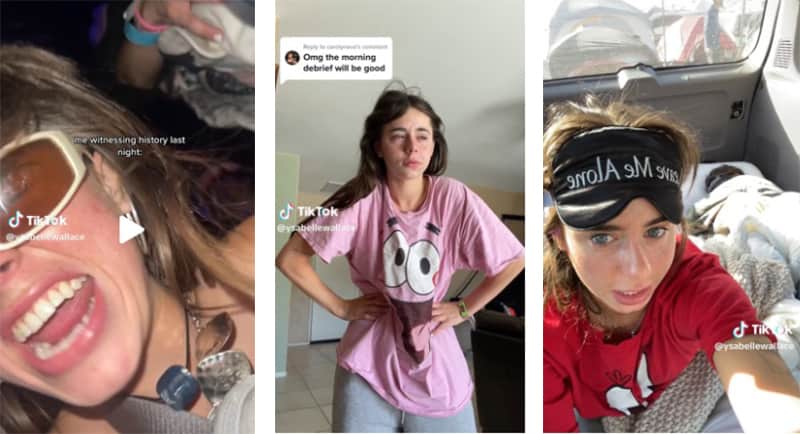
With comments like “thank you for consistently posting the best footage of the festival ily”, it’s clear consumers are gasping for a breath of imperfect fresh air. While historically influencer Coachella content has been typified by mansions in the desert and professionally shot imagery, the “Ourchella” trend proved the shift towards de-influencing.
Content can’t beat collective experiences
Aside from sweat and spilled drinks, the new table stakes for a mosh experience at Coachella is a sea of phones. In videos of almost every set, the multitude of tiny screens filming every second of every performance was too obvious to be ignored.
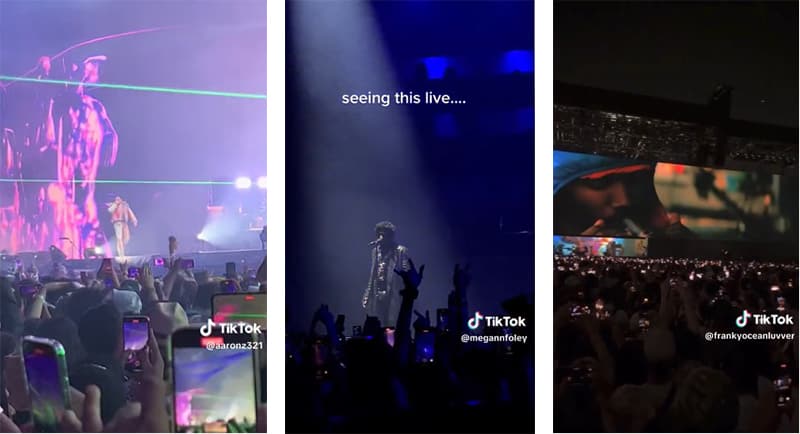
As audiences vie to post that one potentially viral 12 second clip of the performer to TikTok, live in the moment culture seems to have taken a back seat. This is however excluding the final closing set from dance music trio Fred Again…, Four Tet, and Skrillex.
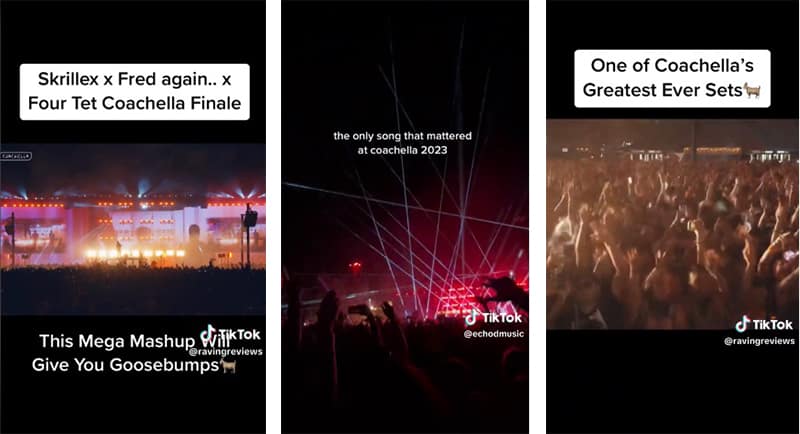
Social commentary on the crowd during the closing set has focused on sentiment like “the first time I’ve seen Coachella enjoying the music”, demonstrating a marked difference in the receptivity and all-round vibe that the three created. Throughout the set were samples of iconic pop-culture songs like Carly Rae Jepson’s Call Me Maybe interspersed with well known songs from each artist. The nature of the set in being unpredictable made it feel to the crowd like a true “one night only” experience that brought the audience together as thought it was a true community. Audiences desire for these moments of collective experience is shown by the willingness of the crowd to put their phones away in favour of living the moment together.
Despite its drama (see: Frank Ocean’s Coachella drop out for weekend 2), Coachella 2023 offered us insight into the cultural shifts that are impacting fashion, content, and community. The event demonstrated the unifying truth that audiences are becoming deprioritising fake social cliques in favour of the real-world individual. As marketers, we can use these learnings to inform how we connect and engage with audiences both online and IRL.
While sex, drugs and rock and roll may not normally have a place in your brand playbook, Coachella should be the exception.
–
Top Image: Kate O’Loughlin
